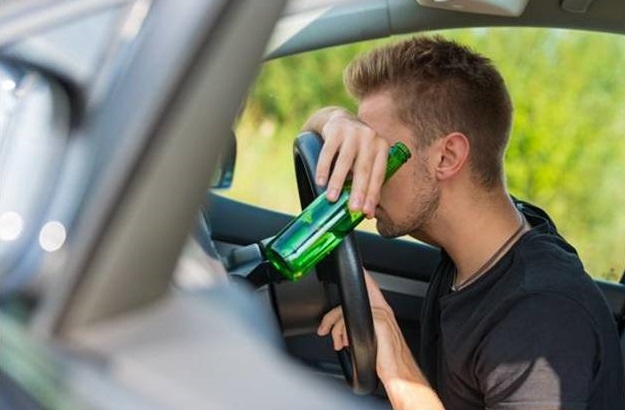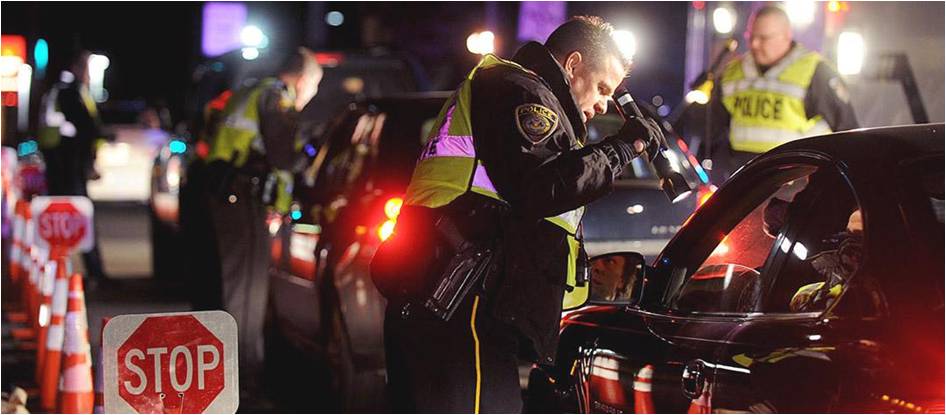
Everyone loves to party to celebrate a victory, promotion or a success, but the party is not “great” without having alcohol, right? It’s time to think and change your mindset.
Being on the top list of main causes of car accidents, drunk driving is unfortunately common in the United States and even worldwide, based on the NHTSA (National Highway Traffic Safety Administration).The rate, accounting alcohol-impaired accidents, is 29% which contributes to the total number of vehicle traffic fatalities in 2015. This percentage is alarming and high. Some of these cases leave minor- fatalities like destroyed properties and injured pedestrians but unluckily, every year thousands of lives are being taken due to these horrible crashes and irresponsible driving. It’s much better to follow the traffic rules, think of a responsible and safe driving in order to prevent unnecessary accidents. Trust me, it’s not worth the risk.
Combination of two things you must avoid is alcohol and driving.
When we drive, drivers must possess the ability to focus, to be alert, to be aware, and to make quick decisions in rapid changes of situations. As one of the top five most addictive substances, excessive alcohol drinking can cause many types of complications in our system, like Cardiomyopathy (enlargement of the heart), Arrhythmias (irregular heartbeat), Fibrosis (lungs scarring), different types of Cancer in the esophagus, mouth and liver and many other diseases. Alcohol intoxication also affects the brain’s neurotransmitters which leads to a slow process of relaying information and disturbs the brain which causes drowsiness and the lack of motor coordination. Alcohol can have negative effects on these crucial driving skills:
- Movement
Our eyes, hands, and feet are the three basic physical parts we need to manipulate to drive a vehicle. As Alcohol intoxication primarily affects the brain region which is responsible for our motor skills, it can lower the coordination between these three physical parts. It also slows the communication between neurotransmitters in the brain that hinders to slow reaction time to a particular situation. Hearing can be also impaired during the presence of alcohol because brain helps us to distinguish different sounds around us.
- Decision making
The study shows that during alcohol consumption, the intoxicated driver has lower stimuli to a sudden situation. Reflexes or reaction time is reduced as much as 25% which limits the ability to identify distances between moving as well as stationary objects. It also creates the difficulty in vehicle manipulation at parking spaces and difficulty in maintaining the amount of speed. Moreover, it slows time to react to emergency situations like stepping on the brakes or controlling the steering wheel.
- Vision
Sight is one of the most important things when it comes to driving.
Drowsiness is one of the most distinguishable negative effects of alcohol in the body. It causes the slow movement of the eye muscles, blurred vision, reduces the peripheral vision and alters the entire visual perception. As a result, it lacks our ability to adjust to a sudden darkness and reduces focus and attention for pedestrians, road signs, and traffic lights. These can eventually result in road accidents, injuries, fatalities or worst, death.
- Conception
Making rational decisions is the important ability for drivers to possess. Alcohol can cause confusion during an emergency situation like hitting the brake and steer manipulation. It also affects your ability to interpret traffic signs or signals as well as the centrelines, moving or stationary vehicles around you as well as crossing pedestrians. This effect is most likely cause collisions or accidents.
- Tracking
Drivers need to focus on many factors at once including speed maintenance, road traffic, the position of the vehicle, distances between your own vehicle and other cars or objects and the comprehension in traffic lights or road signs.

So what should I do when I pulled over and get arrested for DUI
The best thing to avoid this kind of situation is not to drink and drive in the first place. It can be dangerous not only to yourself but also for the other pedestrians and vehicles.A DUI Lawyer at Romano Law, P.C. recommends to:
- Pull over in a safe place and stay in your car.
The police will start flashing lights at you that hints you for a pullover. Once you made the stop, take off any unnecessary accessories like hats, glasses or hood you may be wearing, shuts your car off, keep your hands on the wheel and do not get out unless the police officer asked you to.
- Keep a polite attitude.
Being pulled over for a DUI is terrible if you knew you would probably be caught. So the best thing to do is to cooperate and keep a calm attitude to avoid misbehaviour in front of the law enforcement.
- Remember your 5th amendment rights.
5th amendment rights are your right to be silent about anything that can incriminate you in the future.
- Avoid being blunt.
Being frank with the police officer most likely won’t help you.
- Keep a calm attitude.
If you knew you know you have been alcohol intoxicated you will end up being caught. When getting arrested, stay calm, cooperate and respect the law and remember that anything you say can be used against you in the law court.
- Get legislative help.
Everyone deserves to fight for their rights. Find an experienced and qualified DUI defense attorney to protect you.
In conclusion, every year alcohol is responsible for thousands of deaths on our roads, whether you enjoy an occasional party or developed alcohol dependency, alcohol affects your brain, your body, thinking and your actions each time you drink. Think about the consequences, before taking an action. Drive safely.
